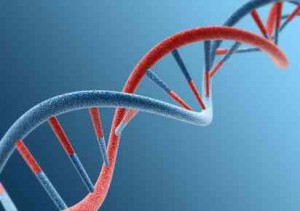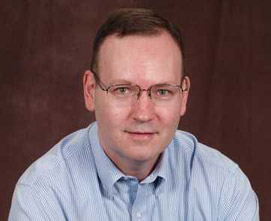 This week a federal appeals court indicated that it may not retreat from its ruling last year that isolated human genes can be patented. The U.S. Court of Appeals for the Federal Circuit is revisiting its 2-1 ruling from last July that upheld Myriad Genetics Inc.’s patents on two genes that can tell whether a woman faces greater risk of developing breast cancer or ovarian cancer. Myriad’s patents allow the company to act as the sole provider of genetic screenings for the diseases.
This week a federal appeals court indicated that it may not retreat from its ruling last year that isolated human genes can be patented. The U.S. Court of Appeals for the Federal Circuit is revisiting its 2-1 ruling from last July that upheld Myriad Genetics Inc.’s patents on two genes that can tell whether a woman faces greater risk of developing breast cancer or ovarian cancer. Myriad’s patents allow the company to act as the sole provider of genetic screenings for the diseases.
The main issue in arguments before the Court of Appeals is whether isolated DNA is ineligible for patent protection as a product of nature. Myriad’s attorneys argue that the patent claim is not for something that is naturally occurring, but for a man-made creation that was the direct result of human ingenuity.
The ACLU disagreed, arguing that Myriad is trying to patent “products of nature” which cannot be patented. The group, along with others, claims that genetic patents stymie medical treatment and further scientific research. The Myriad case has split the medical community with some scientists saying they have been obstructed in their quest for new medicines and treatments because they fear coming up against demands for royalties or letters demanding they stop using patented inventions.
Several months ago the Supreme Court told the Federal Circuit to reconsider the Myriad case in light of a recent ruling that restricted rules on medical-testing patents. Oral arguments for that rehearing took place last week and the panel of judges indicated from their questioning that their views may not have changed.
For instance, Judge Alan Lourie again made comments indicating that he agreed with Myriad. He went on to say that the process of extracting and isolating a gene from the human body makes the gene chemically distinct from the DNA that exists naturally.
The other judge that sided with Myriad, Kimberly Moore, indicated that the U.S. Patent and Trademark Office has allowed patents on DNA sequences for decades and said doing anything to harm that industry risked potential large losses of money. Judge Moore did voice concerns over whether some of Myriad’s claimed inventions are really patentable, leaving open the door for a reversed decision.
A final ruling by the Court of Appeals is expected in the coming months and no matter how the case turns out most everyone expects that the loser will appeal to the Supreme Court.
Source: “Myriad Defends Patent Claims on Genetic Material in Court Case,” by Victoria Slind-Flor, published at Businessweek.com.
See Our Related Blog Posts:
